Smita Patil's Memoir- A Mother Recalls
Smita, my third child, was born on October 17, 1955. Of all the four, only Smita was a premature baby and weighed a pitiful four-and-a-half pounds. I had a smooth sailing pregnancy. Those days, we didn't believe in fussing over our pregnancies. I had not even registered myself at any nursing home. In fact, until my eighth month, I went about my hospital duties, where I worked as a nurse. One day, while on duty, I had a fall and my waterbag ruptured. Still, I continued working. Later, in the day, I sat in a rickshaw and returned home. My husband and elder daughter Anita had gone visiting a friend. So I packed some clothes in a bag, caught a rickshaw again and went to the `Saraswati Vilas Nursing Home' at Pune's busy road and got myself admitted there. I had lost my first child, a son, four months after his birth. Anita, my first daughter, was born a few years later, in 1949 and Manya, my youngest came three years after Smita.
My husband Shivajirao and his brother Uttamrao were deeply involved in the freedom struggle. We were brought up on Gandhian principles and lived a simple life. My husband, being politically overactive, could not take up a regular 9 to 5 job. To ensure a steady income I took up a nurse's job at the Pune municipal Corporation-run nursing home. My husband and I shared an excellent understanding and shared the work equally. This is a legacy that we have handed down to our daughters as well.
He was most of the time at home since he had flexible working hours, so it was easier for him to take care of the children. He made an excellent father and shared a tremendous rapport with his daughters.
Smita, for the first five years of her life, was a weak child. She fell ill frequently and needed constant attention. I was busy with my job, household duties and our small farm which I supervised. Perhaps because of this, I may not have given the children complete attention they needed. There were times when they felt neglected. Smi used to cry bitterly whenever I left for work. She hated the hospital atmosphere, I worked in. Gradually, however, she adjusted...
Smi first attended a balwadi near our house. Then, she joined the Maharashtra Society's Bhave School at Perugate in Pune, where Anita was already studying. As the years went by, her health picked up and she began participating in almost every extra-curricular activity her school had to offer. She played the drums, became a bandleader, did the lezim, as well as gymnastics. Slowly, from a sickly child, Smi emerged into a healthy athletic girl...
.jpg/1%20(2)__600x371.jpg)
She enjoyed being on stage as well. Once, her name was not included in a school play. She picked up a fight over it with her teacher. "I am capable of doing it, why am I not being given a chance?" she protested. Smi had a quality of speaking her mind out when she felt justice was not done. And this was for other people as well. Whenever someone tried to jump a bus queue, Smi was always ready to pick a fight with him. Most people feel self-conscious about this but not Smi. She had strange fancies. Love for animals, was one. And this, she shared with her father and sister Manya. The three of them would pick up street pets and bring them home, feed them with milk and nurse them. When Smi was ten years old, her pet cat delivered two lovely kittens. Smi fussed over it like a mother over her pregnant daughter.
Unfortunately, our tomcat caught the kittens and killed them. Smi was heart-broken and wept bitterly. She organised a proper burial for them in the garden.
On another occasion, a sparrow made a nest in our home and again, the tomcat killed the chicks. This time too, Smi dug a spot in the garden and covered it with cotton wool before burying the sparrows there.
Around this time, my husband was made a minister in the cabinet of the Maharashtra State C.M. Vasantrao Patil. So we shifted to Bombay. Smi continued to stay in Pune. However, she visited Bombay often. Once she picked up two stray dogs on her way — Sheru and Rani, which she left behind with us. One of the dogs, met with an accident. When Smi came to know of this, she rushed to Bombay to take care of the dog, took it regularly for dressing to the vet and slowly nurtured it back to health.
Despite having studied in the vernacular medium, she picked up English, keenly observing others. She was an average student at school. Both, my husband and I considered it more important that our kids divert towards social work so that they develop a genuine, humane feeling towards their fellow beings. Anita and Smi were put into the children's wing of the Rashtra Seva Dal where they attended many workshops during school holidays. It involved touring various villages and entertaining and educating children through dance and drama. The experience, besides giving them an exposure to theatre, developed a feeling of compassion in them for the underprivileged. I hardly recall Smi playing with dolls.
As she grew older, she developed a strong passion for automobiles.
I used to fondly call Smi, Kaalu, because of her dark complexion. I continued to do so even when she became an actress. It used to embarrass her, particularly when I did so in public. But she never developed any complex about it. She was very proud of it and boasted, "I have my father's colour."
After S.S.C. she joined Fergusson college in Pune. She wasn't really interested in studying further but I insisted that she complete her graduation. It was in college, that she met a boy, Nimbalkar. I don't even remember his first name, but being her first infatuation, she was very enamoured by him and told me that she wanted to marry him. The boy came from a princely family from somewhere near Pune. From what I gathered, the family sounded very conservative and would have never allowed their bahu to work. But Smi pleaded with me, "If I don't marry him, he will take to drinking or do something drastic." So I asked her to get him home. She brought him over and I asked him outright if his family would allow Smi to work in theatre.
He said, "No". And I knew that he was not the right person for my daughter. But knowing her, I couldn't tell her so. I told her, "You can marry whomever you like. But you will have to wait till you complete your graduation." It was my condition and she agreed. The relationship fizzled out on its own and Smi came to Bombay and joined Elphinstone college. But she wasn't comfortable. The students were condescending towards the vernacular ones. So within a few months, Smi switched over to St. Xavier's college. Her favourite outfit those days was a pair of jeans and her father's old khadi kurta.
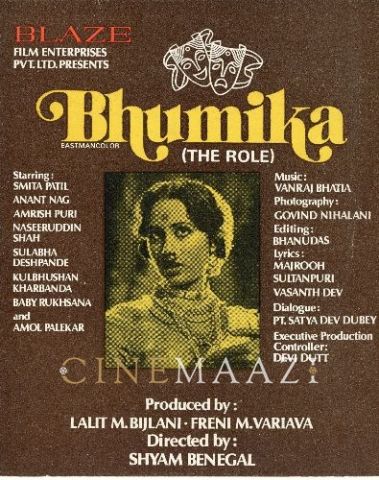
Smi's room-mate at Fergusson college had a boyfriend at the F.T.I.I. Smi used to often accompany him to the institute and that's what aroused her interest in films. One day, she came home and excitedly showed me pictures of her eyes shot by this friend. "Modelling can wait. You have to complete your graduation," I reminded her. One day a friend of hers came home. He was the lyricist of Basu Bhattacharya's Avishkaar (1973). He wanted Smi to pursue a career in films, but I stuck to my guns that Smi should first complete her graduation. "What will she do with a degree?" he argued, "In fact, she will lose out on two precious years of her career." "Maybe," I said adamantly," but she will have to complete her studies."
Television happened to Smi just by chance. Jyotsna Kirpekar, Anita's close friend was working for Bombay Doordarshan and happened to tag Smi along to the TV studios. At the TV centre, an interview was on for newsreaders and Jyotsna pushed Smi for a screen-test. The interviewer asked her to sing a song, which she did. The next thing she knew was that she was selected as a newsreader. But she made her debut with Udyache Karyakram (announcement of the following day's programme). Still a minor and unable to sign a contract, she was signed on a daily wage basis. We didn't have a television set at home that time. Staying at the MLA hostel, we rushed down to the main hall to watch her programme. Later, when we moved into our own flat at Tardeo, we would often go to our neighbour's place to watch Smi's programme on TV. I felt thrilled, much more than I ever did watching her in films.
I had reservations about her joining films. Or probably, because it meant her doing the course in Pune. By this time she was signed by Shyam Benegal for Charandas Chor (1975). It was only after seeing her look so cute in the film that I relented. When she won the Best Actress award for Bhumika, in 1977, the entire family was thrilled. She was shooting outdoors and heard this news over the radio. Immediately, she requested her director for a day off and rushed to Bombay to be with us. She charged up the stairs of our Tardeo flat panting and puffing. When I opened the door, she hugged me with all her might and wouldn't let me go... She was so happy that day.
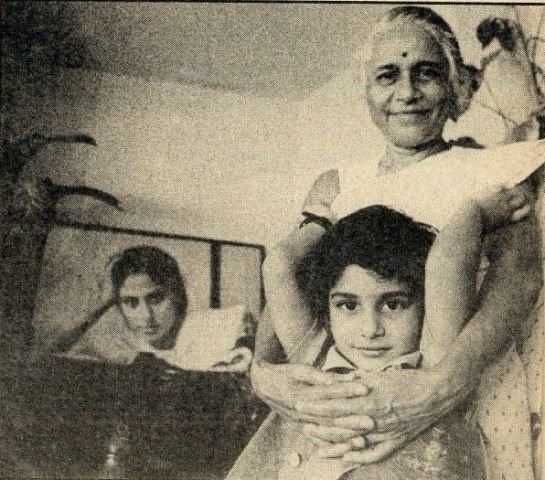
When Smi got involved with a married man, I did not hide my displeasure. Which mother would like it? It went against my principles, it went against morality. I felt the relationship could bring nothing but pain to all of us. I could not accept the marriage till the very end. She informed me she was getting married to Raj in Calcutta and asked me to come for it. I didn't go. If I had, I would have been a hypocrite.
Smi had an overwhelming desire to have a child. In fact, she seemed obsessed by it. She felt if she waited too long there would be complications. Somehow, after she started doing commercial films she felt very insecure. I regret, not giving sufficient time to Smi during her pregnancy because I knew she was going through a lot of tension. Of course, whenever she could, she talked to me about the intricacies of pre-natal and post-natal care. She didn't wish to go abroad for her delivery, because she wanted her child to be born here. We progressed simultaneously. She, as an actress and I, in my social work. Whenever she could, Smi helped me as much as she could. She was very sympathetic towards my work which involved educating the deprived children and upliftment of downtrodden women... The former chairman of Hindustan Lever was a fan of Smi's. Someone suggested to me that if I took Smi along with me for the donation appointment, I was sure to get a handsome amount. I was feeling very awkward to tell this to Smi. But when I did somehow, she said, "Of course. Take an appointment." She often said, "Ma, I wish you had at least five lakhs in your working account, so that you don't have to bother about collecting funds door to door, month after month." This was just after her delivery. Even on the day, she took ill fatefully, December 9, 1986, I was not with her but at my school. My husband called me up and told me about her condition. I said I'd stop by to see her, but went to two other schools at Dharavi. By the time I reached Bandra, it was 2 p.m. I was feeling miserable and apologised to her for the delay. She simply said, "Ma, what would you have done coming early anyway? I just had some fever, so I took some codopyrin and went to sleep."
Her death came so suddenly, that I still haven't recovered from it. If at all I've pulled through, it is because of Prateik. It's ironic that my daughter couldn't live to bring up the child she so desperately wanted and for whom she went against the norms of society!
Today, Prateik is with me and I am doing my best for him. I was never afraid of death. But I am, now. I want to live a few years more for Prateik, for I fear the future. He knows that his mother is dead and thinks of her as a star in the sky. I am bringing him up the way my daughter would have liked him to be reared — simple and unaffected. Despite her star status Smi retained her simple ways. Till the end, her favourite meals were amti bhaat, dudh malai, malai bhaat, methi and palak, bajrichi roti, valache birde and puran poli. And she just loved pure ghee. She asked for all this whenever she came home.
I often think about the heights she may have reached, had she lived. But thoughts such as these cannot bring her back. My husband and I live now for Prateik. He is a happy child. We cannot hide things from him and keep him protected all the while, for as Smi's father says,"His mother's fame and legacy will always be there. I am sure that one day, he will be proud of his mother."
This article was originally published in December 1991's supplementary issue of Junior G magazine titled Smita Patil's Memoir. The images used are taken from the original article.
Tags
About the Author



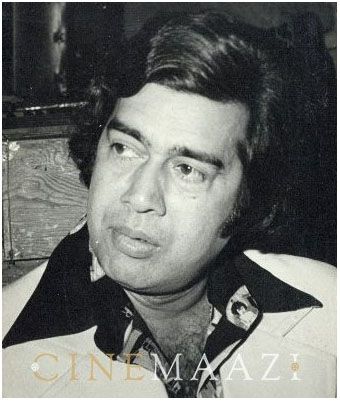
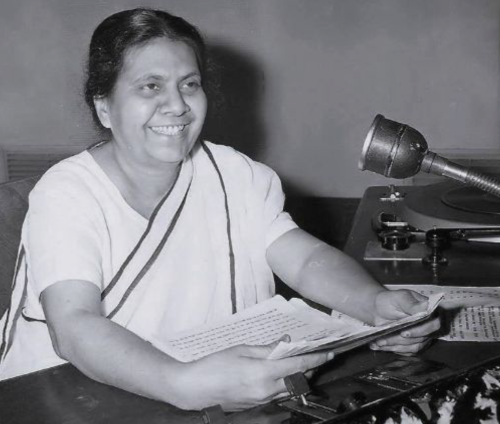
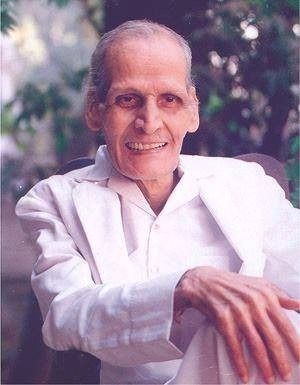
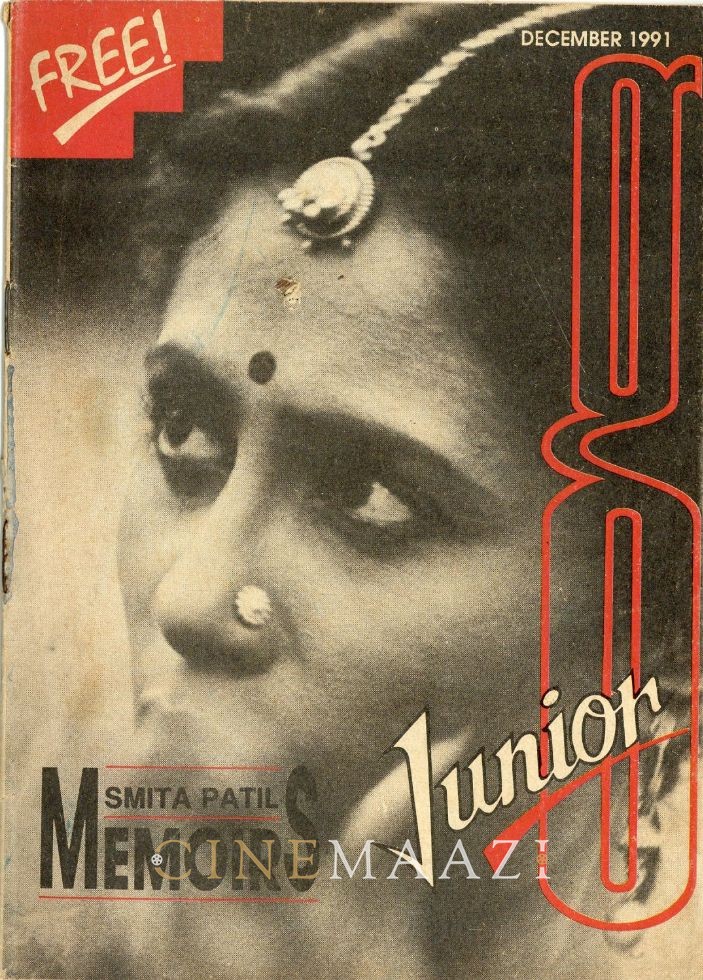
.jpg)


